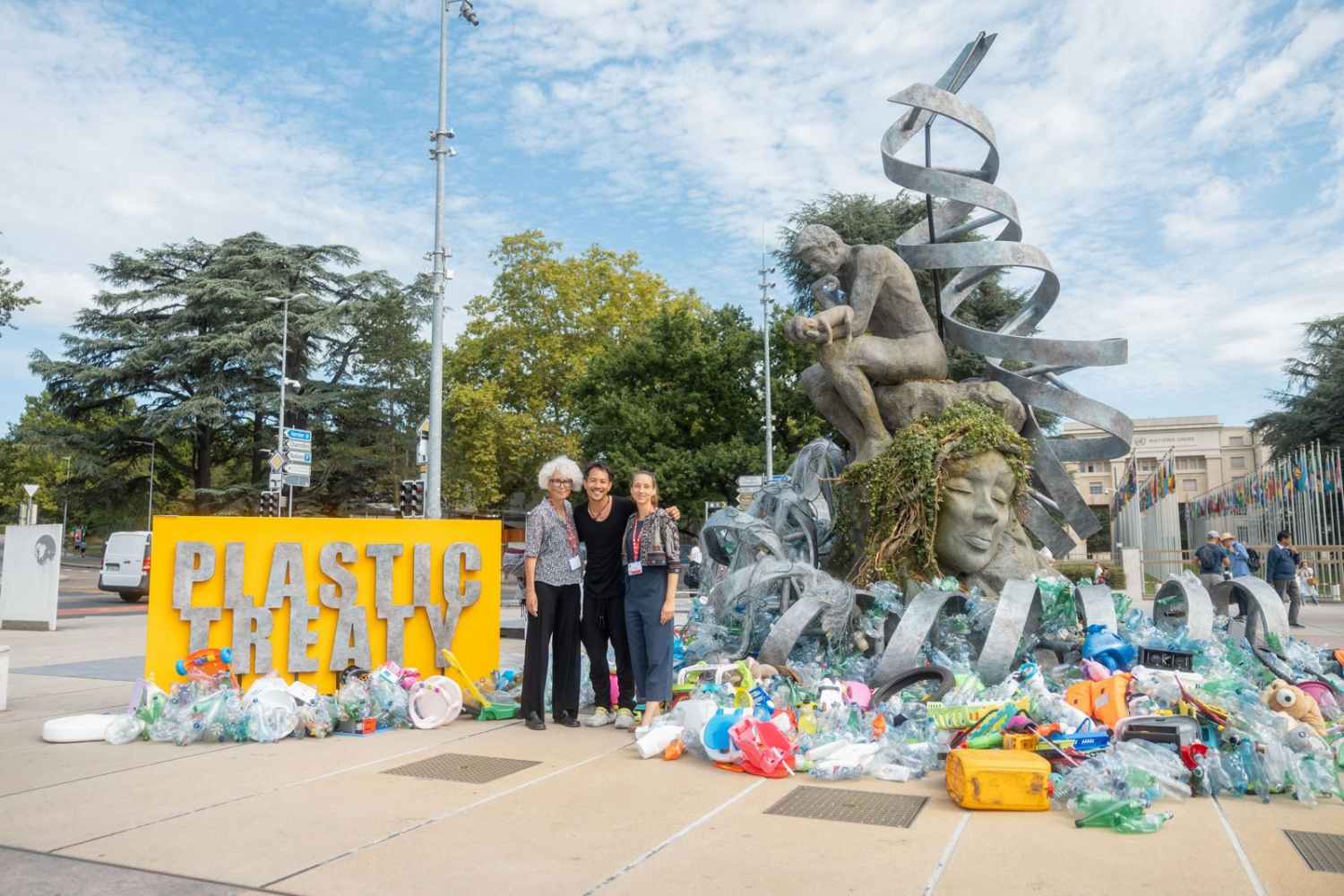Geneva’s plastics talks (Aug 5–14) are the last, best shot at a binding global treaty. Health harms are clear, recycling is stuck at ~9%, and the real test is cutting virgin plastic production—or failing, again.

@GENetwork (X)
From August 5–14 in Geneva, delegates from 179 countries are holed up for what could be the decisive round of talks on a legally binding global plastics treaty (INC-5.2). In theory, it would finally take on the entire plastics lifecycle—from production to disposal. In practice? After five lackluster rounds—the last in Busan—the finish line is still uphill.
A 22-page draft and a decade of risk
On the table sits a 22-page draft the negotiators are combing through line by line, trying to sketch a future with less plastic and fewer loopholes. The urgency isn’t performative. The Global Risk Report 2025 places plastic pollution among the top ten global risks for the next decade. The scale is brutal: in 2024 humanity produced over about 551 million short tons (500 million metric tons) of plastic, with roughly 441 million short tons (nearly 400 million metric tons) already destined to become waste. That is not a system; it’s a conveyor belt to the dump.
Health moves to the center
What’s sharpened the stakes is the increasingly undeniable link between plastics and human health. Just before talks began, The Lancet issued a stark warning: plastics drive disease “at every stage of the plastic lifecycle and across every stage of human life,” with infants and children the most vulnerable. The global health tab is already more than $1.5 trillion a year. Plastics are tied to miscarriages, congenital malformations, heart disease, and cancer. You’d think that would end the debate. It hasn’t.
Two futures, one room
Geneva is split. On one side, over 100 countries pushing for an ambitious, enforceable treaty: legally binding cuts to virgin plastic production, bans on the most hazardous chemicals, and a clampdown on pointless single-use items. On the other, a bloc of “Like-Minded” states—including Saudi Arabia, China, Russia, and Iran—digging in against any production caps, insisting the treaty should focus on waste management and recycling. It’s a tidy narrative that collapses on contact with reality: only about 9% of global plastic is recycled. The United States has planted itself in the middle, favoring a weaker deal without hard production cuts.
From the scientific community, Professor Richard Thompson—the researcher who coined “microplastics”—cut through the fog in Geneva: “It is really clear that to protect future generations we must act decisively now (…). I really hope negotiators can look the next generation in the eye and say they acted decisively.” That should be written on the conference room wall.
The “life-saving plastic” gambit
Industry and major producers aren’t exactly whispering in these halls. At Busan, 220 lobbyists from petrochemicals and fossil fuels showed up. Their line now is simple: plastic is essential to health, especially in medical settings—so they want a carve-out for healthcare. That loophole would be big enough to drive a polymer plant through.
Healthcare leaders are pushing back. Health Care Without Harm, representing 48 million health workers in 88 countries, has circulated an open letter rejecting the myth that hospitals need mountains of disposable plastic to function. The message: cutting unnecessary plastics in healthcare is both possible and necessary to protect patients.
The real choice before august 14
Time is short, and the choice is not subtle: protect the profit of a few, or the health of everyone else—and the planet. As Graham Forbes of Greenpeace put it, “Runaway plastic production is a death sentence. The only way to end plastic pollution is to stop producing so much of it.” He’s right. Without hard caps on virgin plastic, the rest is window dressing.
If this treaty ducks the production question, it fails. The waste will keep coming, the toxins will keep spreading, and the bill—in dollars and in lives—will keep climbing. Geneva can still change that, but the clock isn’t negotiating.
